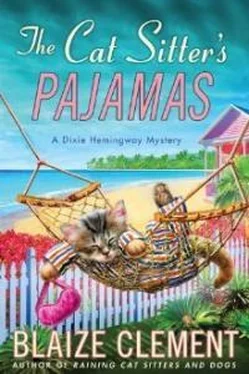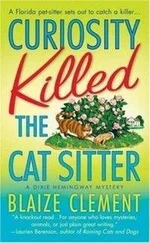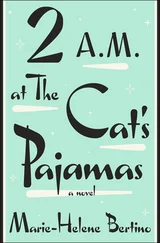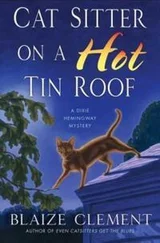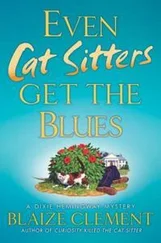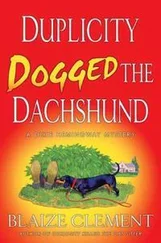Cupcake looked like he might cry any minute, just from confusion.
In my head, over and over, I heard Briana telling about breaking into houses with Cupcake: Cupcake mostly did it so he could get a pair of Nikes.
Jancey pulled back the duvet to uncover pale pink sheets neatly tucked under the mattress. Her face relaxed. “I don’t think she got in our bed.”
Cupcake said, “Jancey, I swear to God I never knew that woman. I’ve never talked to her. I don’t know anybody else who knows her.”
I said, “Maybe it wasn’t Briana who left the shoes. Maybe it was the woman who was murdered.” I didn’t believe that, but I wanted to.
Cupcake closed his eyes. “God, I’d forgotten about her.”
Shamed, Jancey said, “Me, too.”
Cupcake said, “Dixie, don’t you think it’s peculiar that nobody knows who that woman was?”
I said, “She didn’t have any identification on her body. No wallet, no purse, nothing with a name or address on it.”
“Couldn’t they tell from fingerprints?”
I told him the same thing I’d told Tom Hale. “Some people live their entire lives without being fingerprinted. There’s also a DNA database, but DNA is only collected in criminal cases.”
Jancey said, “You’d think her family would report her missing.”
“Maybe there is no family. Maybe she’s a loner that nobody misses.”
For a moment, my mind snagged on all the things we didn’t know—gaps in personal histories, holes in life stories, dark secrets that could cost another life. Briana was either from Switzerland or Louisiana. She had or had not known Cupcake as a kid. Somebody had left a new pair of Nikes in the middle of the Trillins’ bed, and nobody knew why. Men who spoke a foreign language had hurt me very badly, but I had no bruises to prove it. A woman had been murdered and nobody knew who she was.
In the media’s coverage, the murder in Cupcake’s house had been merely an excuse to explore Briana’s glamorous life and Cupcake’s sports history and philanthropic activities. When the dead woman was discussed at all, it was merely to give the particulars of her color, size, and approximate age. There hadn’t even been the usual nattering talk shows about how odd it was that not one but two women had broken into Cupcake’s house that morning.
The doorbell rang, and we snapped to attention.
I said, “I’d better go home now. Call me if there’s anything I can do to help.”
We all moved toward the front door, and Cupcake opened it. The homicide detective, Steven, stood outside.
He said, “Mr. Trillin? I’m Steven Jorgensen, with the FBI.”
Catching sight of me, he looked embarrassed.
When Cupcake introduced me and Jancey, Steven said, “Ms. Hemingway and I have met.”
I said, “Except you told me you were a homicide detective with the sheriff’s department.”
“You assumed I was a homicide detective.”
He had me there. When I thought back to our conversation at the diner, I had to admit he’d never actually said he was with the sheriff’s department. I had, as he said, assumed he was because Sergeant Owens had told me “the investigator” would be stopping by the diner to talk to me. I planned to have a little talk with Owens about that, but I should have known the FBI would get involved in the case. They always come in when state lines have been crossed in a crime. In this case, international lines had been crossed.
Cupcake gave us a puzzled frown.
I said, “Steven talked to me about the murder. I didn’t realize he was with the FBI.”
Steven said, “Actually, I’m just on loan to the FBI. I’m with Interpol.”
Cupcake said, “Interpol?”
He sounded as if Interpol was just one damn thing too much. His glower was enough to cause the most hardened criminal investigator to quake.
It caused Steven to look defensive. “Interpol is an intelligence and liaison agency. We get involved in cases where law enforcement agencies of different countries have to cooperate.” Turning to me, he said, “Actually, I’m glad to have a chance to talk to you and Mr. Trillin together.”
I knew what that meant. If he questioned us together, we wouldn’t be able to give each other a heads-up if we told a lie.
Jancey said, “We can talk in the kitchen. I’ll make coffee.”
He said, “That would be nice, Mrs. Trillin.”
Jancey led the way and we all traipsed to the kitchen, where everything was warm wood and cold stainless steel, with a swan’s-neck faucet at the sink tall enough for a child to stand under and take a shower. Cupcake and Steven waited until I sat down at a round oak table; then they took chairs while Jancey bustled around filling a coffeepot and attaching it to a machine that looked as if it had come off a space ship. While the coffee machine sighed and gurgled, she got down black glazed coffee mugs, asked if anybody took sugar or cream, got a united no, and went to the freezer, where she took out a plastic bag of cookies and shook some on a black pottery plate.
She put the plate on the table, and we all leaned toward the scent of chocolate chips. It may have been my imagination, but Steven’s eyes seemed to go a shade lighter.
He said, “You freeze them?”
She nodded. “As soon as they’re cool from the oven. Makes the chocolate set up, and they’re crispier after they’re frozen.”
She moved gracefully to pour coffee, and Steven watched her. When he looked back at Cupcake, he had a new respect in his eyes. Everybody fawned over Cupcake because he was a great athlete. His close friends knew he was also a great guy, but his adoring fans only knew that he was a powerhouse on the football field. That’s all Steven had known, too, but now he was seeing another side of Cupcake. The side that had a beautiful, gracious wife who baked chocolate chip cookies with extra care and served them with dignity and charm. A man with a wife like that is more than a big athlete, he’s a man who has earned the love of a discriminating woman. Seeing that Steven recognized that and respected it made me look at him with a bit more respect.
I was becoming so comfortable with the man that I was almost on the verge of asking him where he was from originally. As if we really were just folks having coffee and cookies together.
Jancey wasn’t as easily seduced as I was. Pointedly looking from me to Cupcake, she said, “Tell him about the shoes.”
Cupcake said, “That woman left a pair of Nikes on our bed.”
Steven’s eyes lit. “Could I see them please?”
Jancey said, “I’ll get them.”
We waited silently until Jancey hurried back with the shoes.
Just so I wouldn’t look like I never had an original idea, I said, “It could have been the dead woman who left them.”
Steven grunted and examined the shoes the same way Cupcake and Jancey had done.
He said, “Nikes mean anything to you, Mr. Trillin?”
Cupcake chuckled. “Only that I grew up poor, and wearing a pair of Nikes meant you were somebody. You walked tall if you had Nikes.”
Steven pulled a penknife from his pocket, sank the tip inside one of the shoes, and popped out the insole. I wondered why I hadn’t thought to do that.
He said, “Poor kids still covet Nikes. If you ask a ghetto kid why he started dealing drugs, nine times out of ten he’ll tell you it was so he could buy a pair of Nikes.”
Steven set the shoes side by side with their heels toward us. “See how the top edges aren’t symmetrical?”
Now that he mentioned it, I could see that one shoe’s top edge slanted slightly to the left.
Like a magician playing his audience, Steven turned the shoes so their swoosh logos were facing us. “An authentic swoosh is curvy. These are angular. Now look at the stitching. See how some stitches are longer than others? And see how the material is rough at the edges? Look at the laces. Notice the broken fibers that give them a slightly fuzzy look.”
Читать дальше
